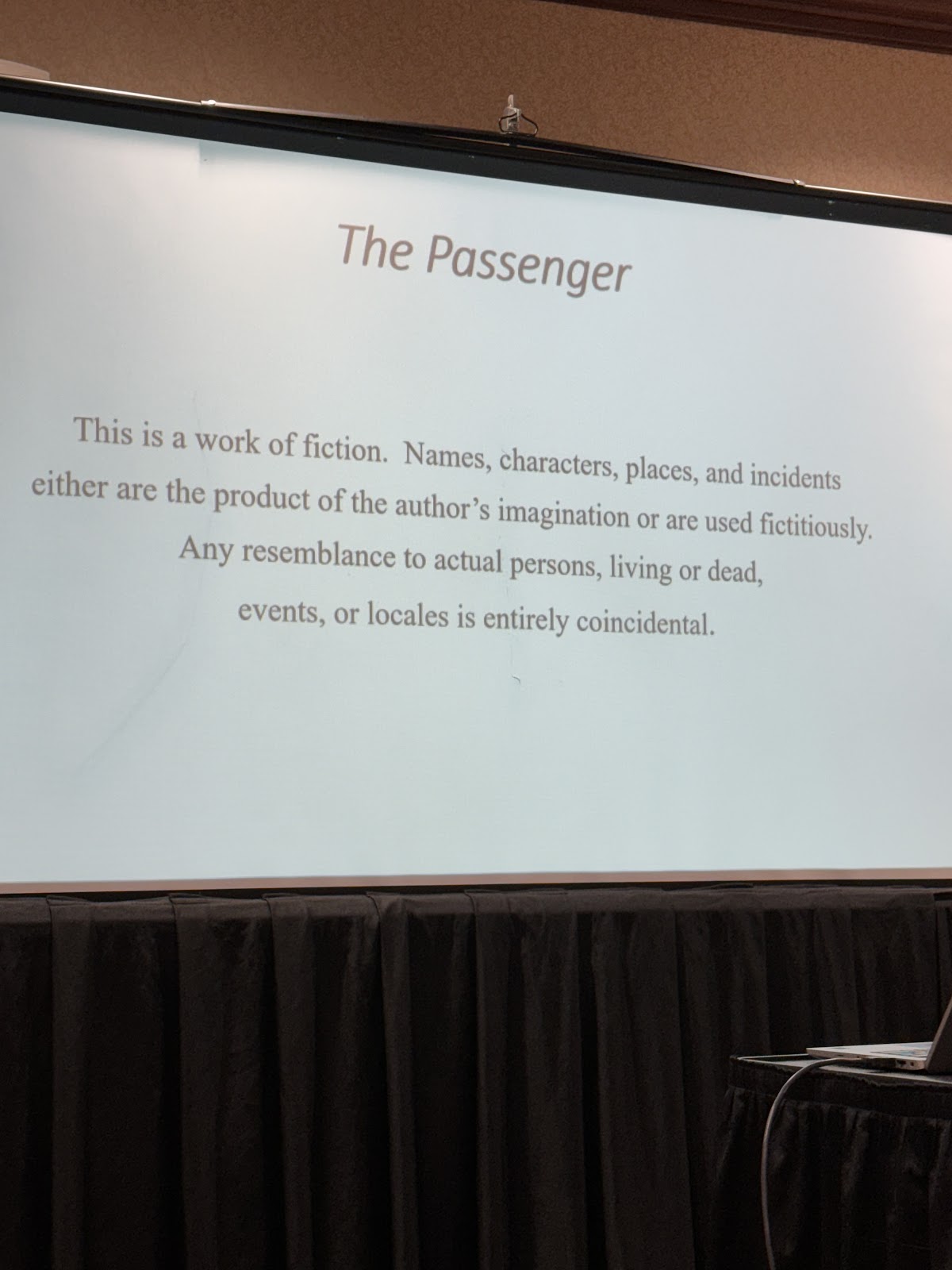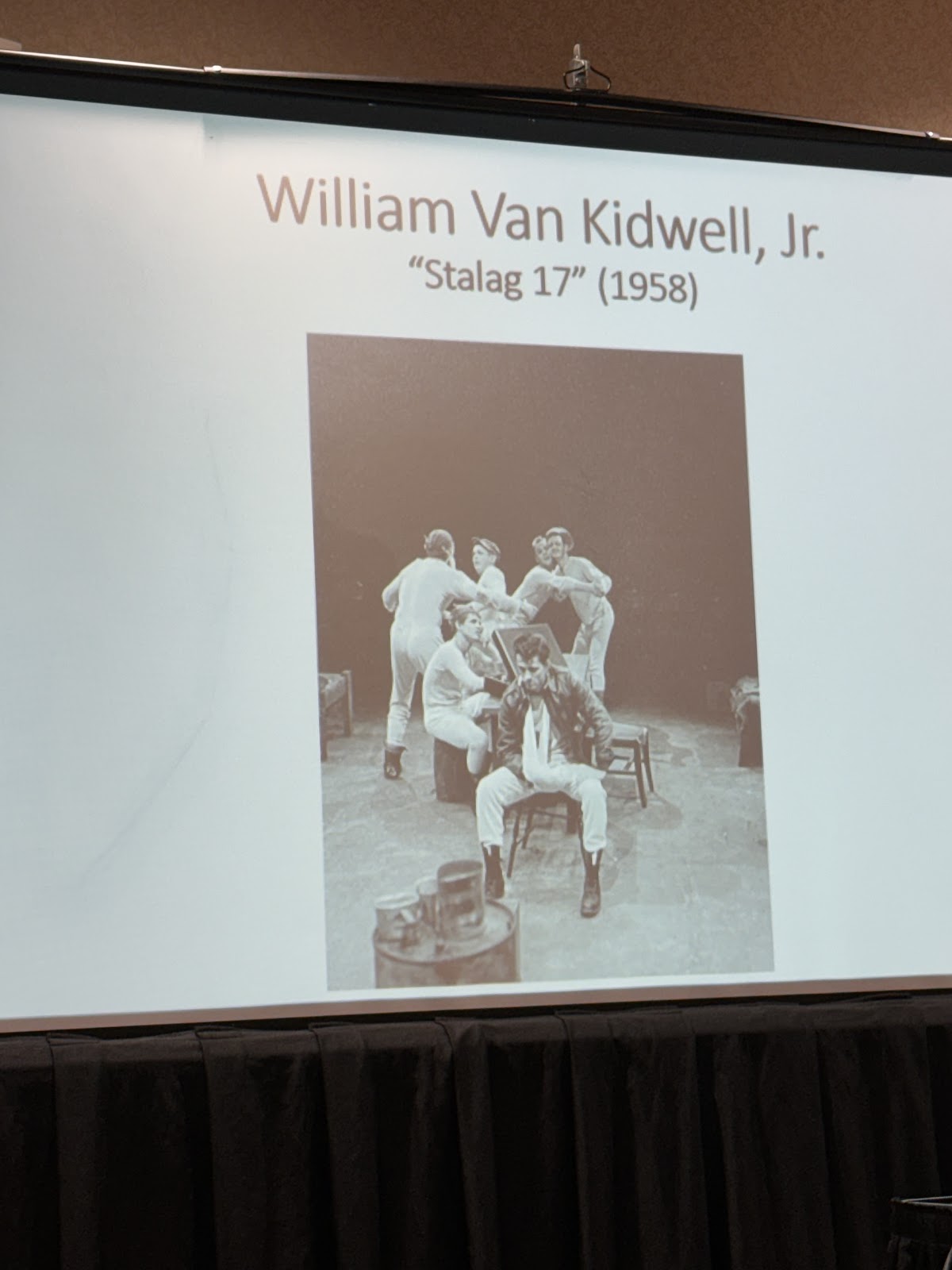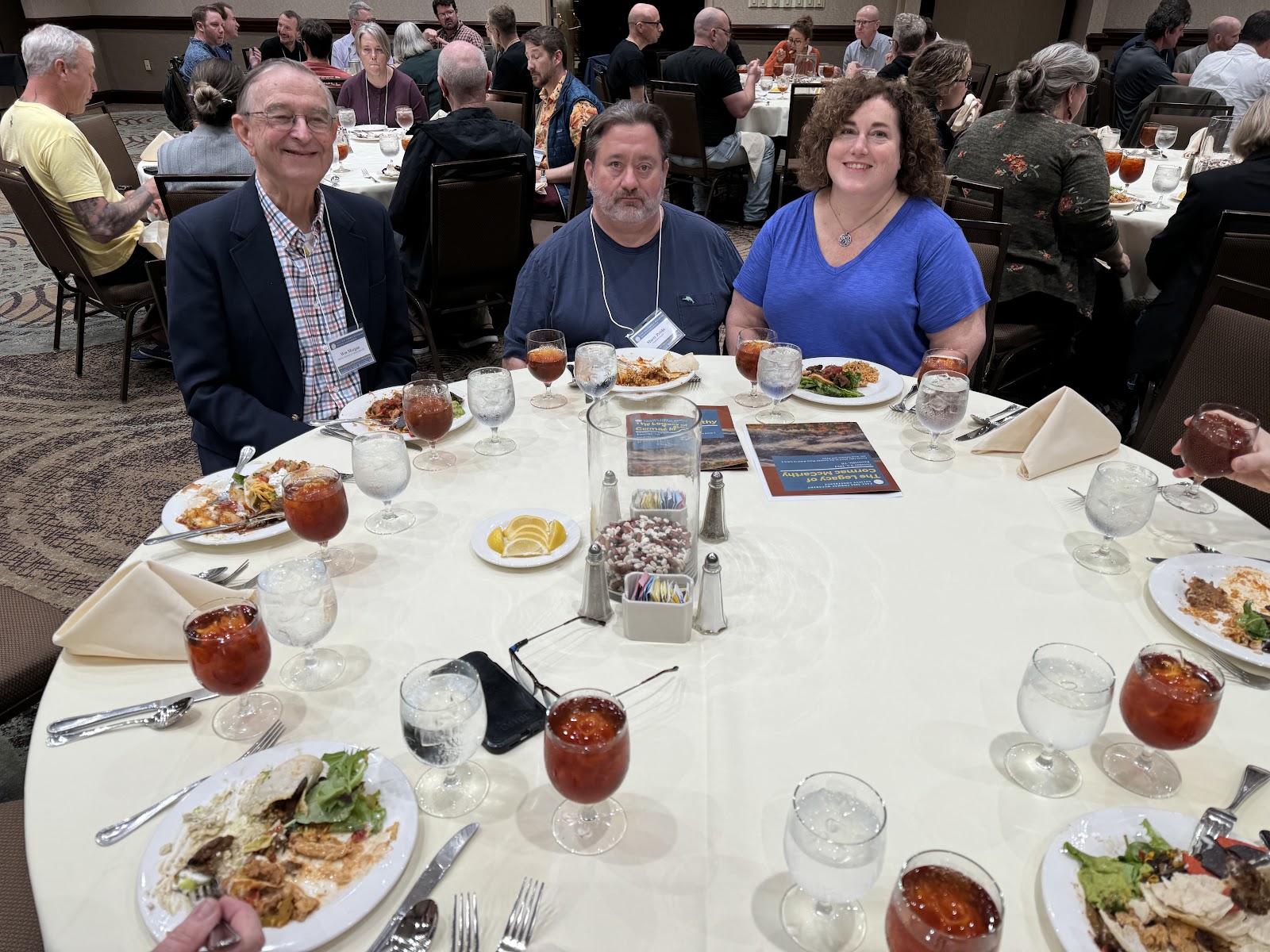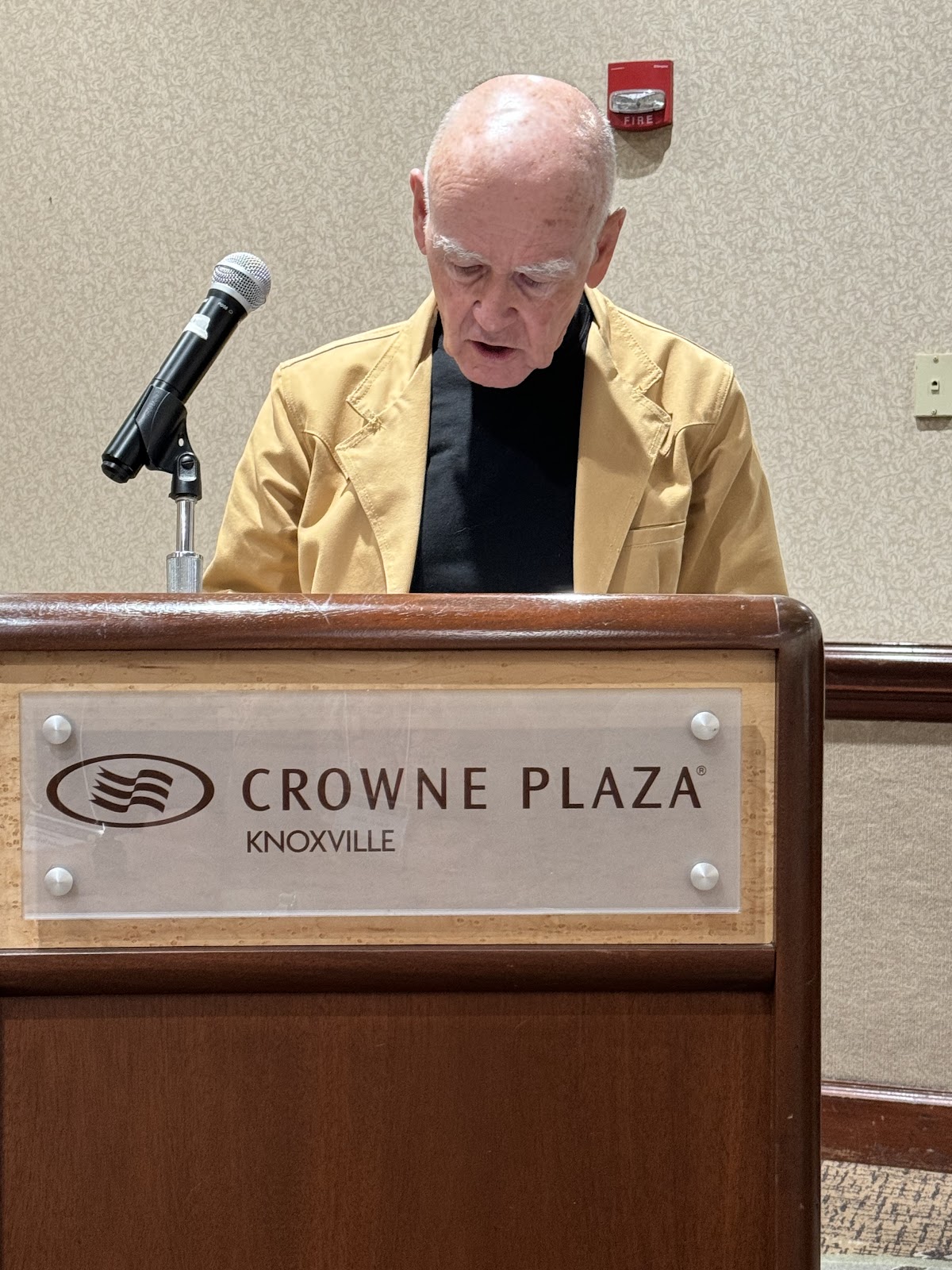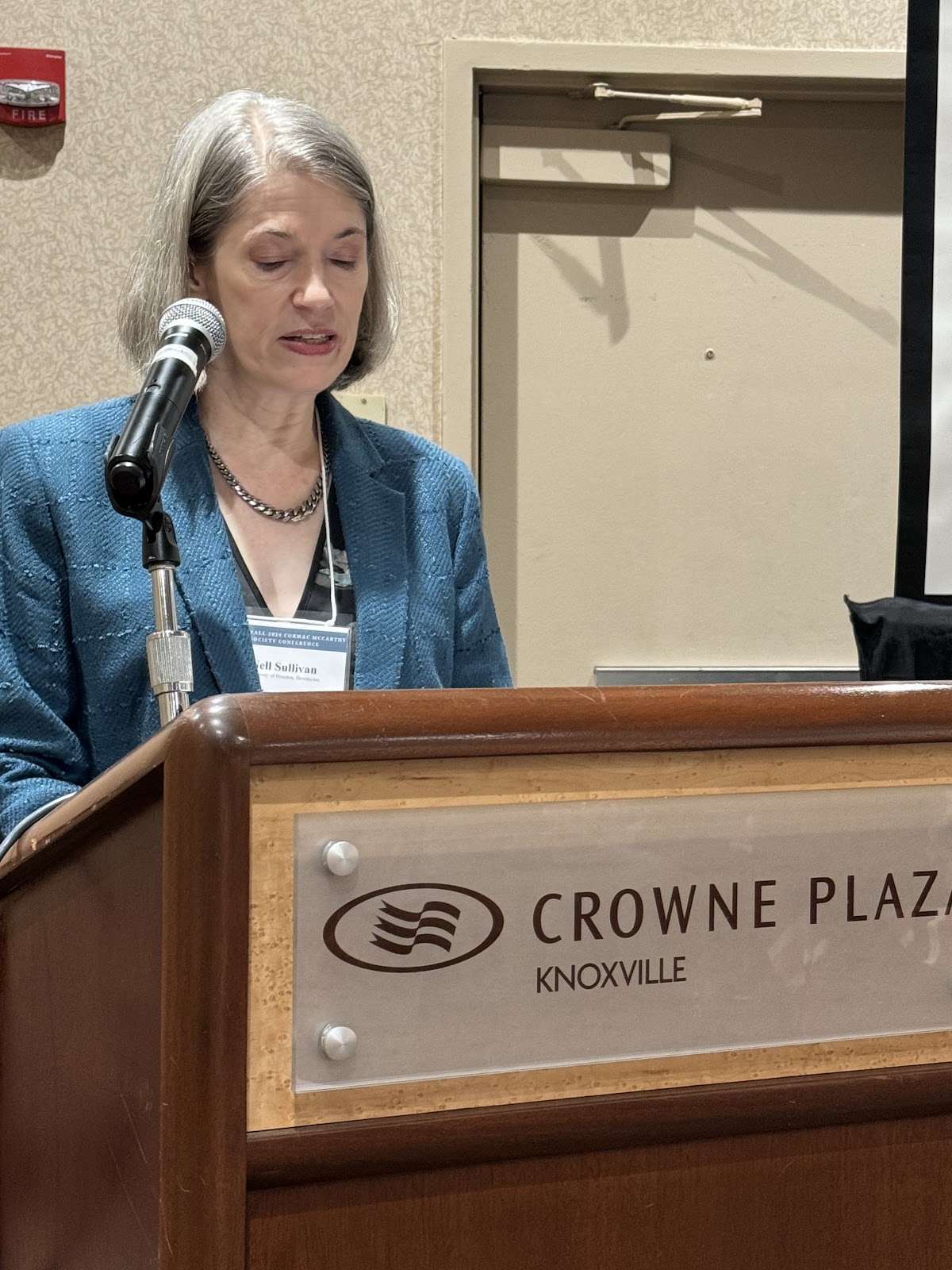Michael Crews wrote a fantastic book called "Books Made Out Of Books." It is an indispensable resource for Cormac McCarthy fans and scholars. he is also a super nice funny fellow!
Painting of John Sheddan. Sheddan is in "The Passenger."
Kidwell also made an appearance in "The Passenger."
Wednesday, October 16, 2024
Some More Moments In Knoxville
Wes Morgan
Wes Morgan presenting on the real-life people mentioned in McCarthys twin novels (or duololy)
Travis McDonald and I in Market Square, Knoxville.
Annie DeLisle and I. McCarthy's send wife, she typed Suttree TWICE!
Russell Hillier and Yakuz
Terra on left, Travis on right...getting some supper.
Dennis McCarthy, Cormac's brother, read a paper by Rick Wallach who was unable to attend due to health challenges.
Todd Wobble, who I know from ALBQ conferences.
Tuesday, October 15, 2024
Knoxville Conference 2024
William Quick
Nell Sullivan
A panel with Nell Sullivan, Marcus and Jonathan Elmore
A downtown bar and restaurant named after a well-loved novel by Cormac McCarthy. Drinks have names of significant plot details
Wes Morgan and Stephen Frye
Official McCarthy biographer Lawrence Gonzalez and his wife Debby.
I've never seen a park decorated for Halloween!
Sunday, October 13, 2024
Margeret Visser
The brilliant Canadian Margaret Visser describes herself as "an anthropologist of daily life." I'm reading her most recent book...and I've read all her previous books.
“Trivers defines guilt as a kind of debt, incurred by a "cheater," one who tricks others into giving when they need not, or who fails to reciprocate
"altruism." The others must punish him in order to bring him into line. If a
"cheater" finds all future aid from others cut off, "then the cheater will have paid dearly for his misdeed. It will be to the cheater's advantage to avoid this, and, providing that the cheater makes up for his misdeed and does not cheat in the future, it will be to his partner's benefit to avoid this, since in cutting off future acts of aid he sacrifices the benefits of future reciprocal help..." Pardon is therefore thought to be a matter of pure self-interest, and cheaters are "selected" to make a reparative gesture so as to mollify others, for in this manner the rupture of reciprocal relationships is prevented. The emotion we call guilt or remorse has arisen to help this to happen, through natural selection.®
Guilt leading to reparations must occur, according to this view, mainly when everyone knows what the guilty person has done. In 1966 a laboratory experiment produced this conclusion by setting up a piece of expensive equipment so that it would automatically break when handled by some— but not all—of the human participants. All of them were then asked if they would care to volunteer for an experiment that would cause them to experience pain. The ones who had "broken" the expensive machine were more likely, out of guilt, to sign up than those who had not—but only if they thought their transgression had been discovered.'’
Subscribe to:
Comments (Atom)









